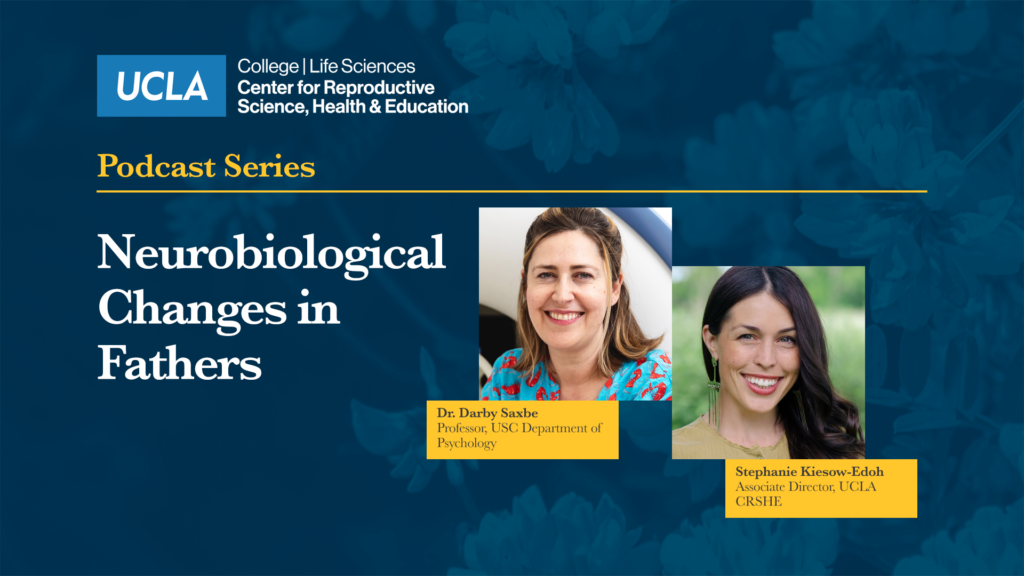
Do fathers experience neurobiological changes during the postpartum period similar to that of mothers? Stephanie sits down with Dr. Darby Saxbe, PhD, Professor of Psychology at the University of Southern California, as they explore this transition to parenthood as a window of neuroplasticity. The two dive into the influence of specific hormones such as prolactin, why fathers have been understudied, and the importance of social connection in society today.
Curious about a specific topic? Here’s what we cover:
0:45 Introduction to Dr. Saxbe
2:22 Prolactin and its effect on fathers
5:52 Using the word “attachment” versus “bonding” in research
7:24 Link between fathers’ birth experiences and paternal mental health
12:22 Resiliency for couples through birth and postpartum
14:20 Mothers’ birth stress and postpartum outcomes
15:38 How and/or why fathers’ mental health has changed
19:36 Should we be screening fathers’ mental health or no?
24:24 What surprised Dr. Saxbe the most while conducting her research
26:27 Parenting and its neuroprotective effects
31:10 Future directions for Dr. Saxbe’s research
Recent Research
Cortical volume reductions in men transitioning to first-time fatherhood reflect both parenting engagement and mental health risk (https://academic.oup.com/cercor/article-abstract/34/4/bhae126/7645338?redirectedFrom=fulltext&login=false)
Prenatal prolactin predicts postnatal parenting attitudes and brain structure remodeling in first-time fathers (https://www.sciencedirect.com/science/article/abs/pii/S0306453023003104?via%3Dihub)
Fathers’ subjective childbirth stress predicts depressive symptoms at six months postpartum (https://www.sciencedirect.com/science/article/abs/pii/S0306453023003104?via%3Dihub)
Prenatal testosterone synchrony in first-time parents predicts fathers’ postpartum relationship quality (https://www.sciencedirect.com/science/article/abs/pii/S0018506X23001381?via%3Dihub)
Changes in hippocampal volume in first-time fathers: Associations with oxytocin, testosterone, and adaptation to parenthood (https://onlinelibrary.wiley.com/doi/10.1111/jne.13270)
Dr. Darby Saxbe
NeuroEndocrinology of Social Ties Lab (https://dornsife.usc.edu/nestlab/)
Biography
Dr. Saxbe has studied the transformative impact of new parenthood on the brain, body, and mind, as well as the enduring legacy of early family environments on child well-being. Her current work focuses on the transition to parenthood and follows couples from pregnancy into the first year postpartum. One of her studies examines the “fathering brain,” using neuroimaging to scan fathers both prenatally and again postpartum. She has also examined physiological synchrony within families and has published multiple studies that find hormonal linkage within couples and parent-child dyads. Her research has been funded by the National Science Foundation and the National Institutes of Health, and she received a Fulbright Fellowship to study the parenting brain in Spain in Fall 2019. Her first book, Dad Brain, is forthcoming from Flatiron Books in Spring 2026.